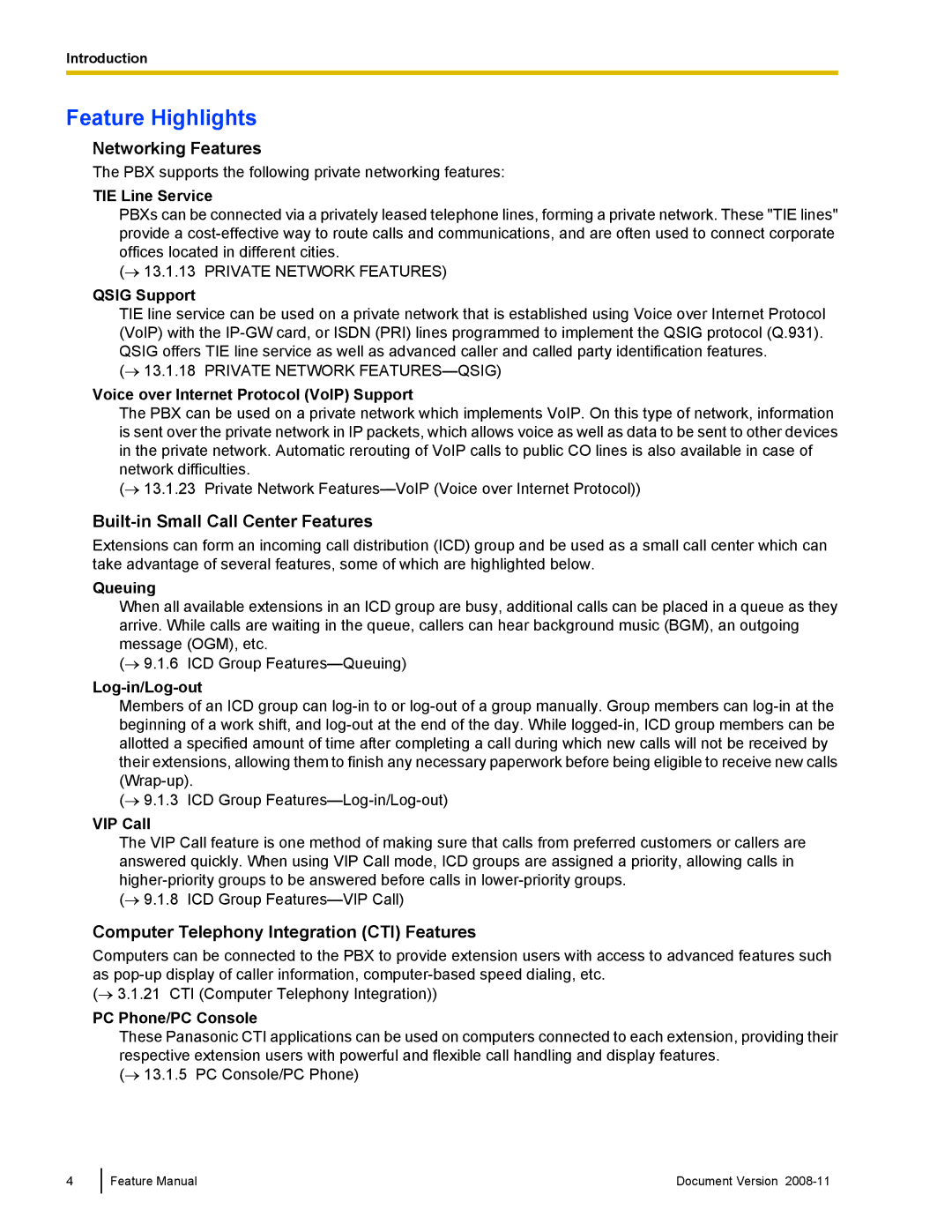
Introduction
Feature Highlights
Networking Features
The PBX supports the following private networking features:
TIE Line Service
PBXs can be connected via a privately leased telephone lines, forming a private network. These "TIE lines" provide a
(→ 13.1.13 PRIVATE NETWORK FEATURES)
QSIG Support
TIE line service can be used on a private network that is established using Voice over Internet Protocol (VoIP) with the
(→ 13.1.18 PRIVATE NETWORK
Voice over Internet Protocol (VoIP) Support
The PBX can be used on a private network which implements VoIP. On this type of network, information is sent over the private network in IP packets, which allows voice as well as data to be sent to other devices in the private network. Automatic rerouting of VoIP calls to public CO lines is also available in case of network difficulties.
(→ 13.1.23 Private Network
Built-in Small Call Center Features
Extensions can form an incoming call distribution (ICD) group and be used as a small call center which can take advantage of several features, some of which are highlighted below.
Queuing
When all available extensions in an ICD group are busy, additional calls can be placed in a queue as they arrive. While calls are waiting in the queue, callers can hear background music (BGM), an outgoing message (OGM), etc.
(→ 9.1.6 ICD Group
Log-in/Log-out
Members of an ICD group can
(→ 9.1.3 ICD Group
VIP Call
The VIP Call feature is one method of making sure that calls from preferred customers or callers are answered quickly. When using VIP Call mode, ICD groups are assigned a priority, allowing calls in
(→ 9.1.8 ICD Group
Computer Telephony Integration (CTI) Features
Computers can be connected to the PBX to provide extension users with access to advanced features such as
(→ 3.1.21 CTI (Computer Telephony Integration))
PC Phone/PC Console
These Panasonic CTI applications can be used on computers connected to each extension, providing their respective extension users with powerful and flexible call handling and display features.
(→ 13.1.5 PC Console/PC Phone)
4
Feature Manual | Document Version |
